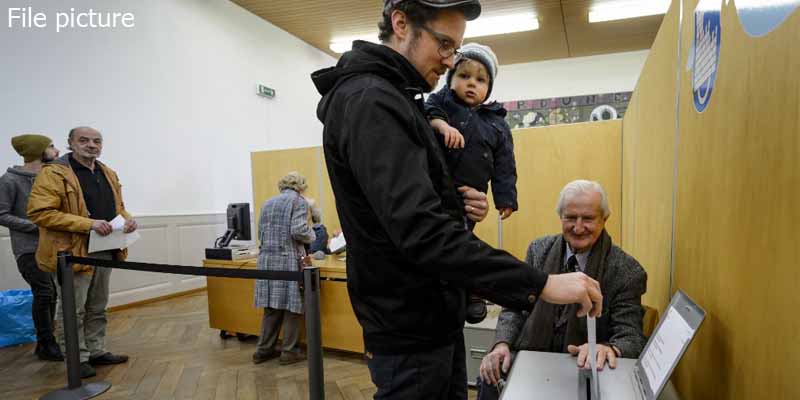- World
- Jun 16
Explainer / Direct democracy system in Switzerland
• Swiss voters rejected a trio of environmental proposals, including a new law intended to help the country meet its goal for cutting carbon emissions under the Paris Agreement on Climate Change.
• A new CO2 law was narrowly rejected, with 51.6 per cent of voters opposing it in a nationwide referendum conducted under the country’s system of direct democracy.
• The result was a defeat for the Swiss government which supported the new law that included measures such as increasing a surcharge on car fuel and imposing a levy on flight tickets.
What is direct democracy?
• Direct democracy is one of the special features of the Swiss political system.
• It’s a legal framework that enables all Swiss citizens over the age of 18 to vote on how the country is run.
• It allows the electorate to express their opinion on decisions taken by the federal parliament and to propose amendments to the Federal Constitution.
• All Swiss citizens aged 18 and over have the right to vote in elections and referendums.
• The Swiss electorate are called on approximately four times a year to exercise this right, and vote on an average of 15 federal proposals.
• In recent decades, voter turnout at elections and referendums has been below 40 per cent.
• Swiss citizens can also voice their demands by means of three instruments which form the core of direct democracy: popular initiative, optional referendum and mandatory referendum.
1) Popular initiative: The popular initiative gives citizens the right to propose an amendment or addition to the Constitution. It acts to drive or launch a political debate on a specific issue. For such an initiative to come about, the signatures of 100,000 voters who support the proposal must be collected within 18 months. Any idea from the public can be put to a national vote if it gathers 100,000 signatures from the 8.6 million population, but these so-called popular initiatives require the double majority to pass.
2) Optional referendum: The optional referendum allows the people to demand that any Bill approved by the Federal Assembly is put to a nationwide vote. In order to bring about a national referendum, 50,000 valid signatures must be collected within 100 days of publication of the new legislation.
3) Mandatory referendum: All constitutional amendments approved by parliament are subject to a mandatory referendum. They must be put to a nationwide popular vote. The electorate are also required to approve Swiss membership of specific international organisations.
Voters reject new CO2 Law
• Nearly 52 per cent rejected a new carbon dioxide law that would have used tax policy to cut greenhouse gas emissions by 50 percent of 1990 levels by 2030.
• The rejection meant it would now be very difficult for Switzerland to reach its 2030 goal of cutting carbon emissions to half of their 1990 levels and to become net neutral on emissions by 2050.
• The government would now seek to extend measures like a duty for fuel importers to invest in climate protection projects, and attempt to forge a new consensus with the population on climate policies.
Rejection of proposal to ban on synthetic pesticides
• The voters rejected a proposal which would have made Switzerland only the second country in the world to ban artificial pesticides outright, and another proposal to reduce their use by redirecting subsidies to farmers who no longer used the chemicals.
• An initiative, “For a Switzerland free from synthetic pesticides”, called for a domestic ban within 10 years, and the outlawing of imported foodstuffs produced using such pesticides. Only farms not using pesticides, and only using antibiotics to treat sick animals, would have been eligible for government subsidies.
• Supporters had argued that pesticides were linked to health risks, while opponents had claimed a ban on pesticides would have led to more expensive food, job losses for the Swiss food processing industry, and greater dependence on imports.
• No major country has so far banned man-made pesticides. Bhutan announced in 2012 that it wanted to become the first nation in the world to turn its home-grown food and farmers 100 percent organic.
• Separate referendums to support a temporary law providing financial support for businesses during the COVID-19 pandemic and a law to give police extra powers to tackle terrorism were both approved by voters.
Manorama Yearbook app is now available on Google Play Store and iOS App Store


